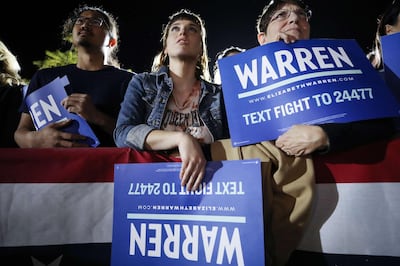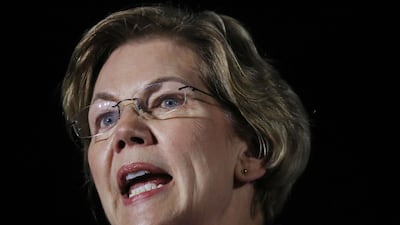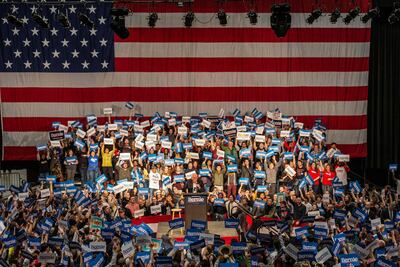All the candidates have held hundreds of meet-and-greet events, travelled thousands of miles, eaten a lot of junk food and their campaigns have spent hundreds of millions of dollars to get them to this make-or-break moment.
So far, less than 5 per cent of delegates have been allotted from the handful of primaries that have already taken place, but today, on Super Tuesday, more than a third are up for grabs – giving it the potential to propel a candidate to front-runner status, and prompt others to drop out of the race.
What is Super Tuesday and why is it important?
The winner of Super Tuesday has gone on to become the Democratic Party nominee for the presidential elections in eight of the last nine cycles.
It’s the day when the greatest number of US states at one time will see voters cast their votes to nominate presidential candidates.
It is second only to Election Day in the democratic calendar. Republicans will also be voting for their candidate, but incumbent Donald Trump has little in the way of a challenge.
So, all eyes are on the Democratic contest.
How many delegates are up for grabs on March 3?
Super Tuesday offers 1,344 delegates from 14 states and one territory to vote that day, or about 34 per cent of all pledged delegates.
The 14 states across the country breakdown like this: California has the most pledged delegates (415) followed by Texas (228), North Carolina (110) and Virginia (99), Minnesota (75), Colorado (67), Tennessee (64), Alaska (52), Oklahoma (37), Arkansas (31), Utah (29), Maine (24), Vermont (16) and American Samoa (6).
A Democratic candidate needs 1,991 of them to win in the first vote at the Democratic National Convention.
What is a delegate?
A pledged delegate for the Democratic Party is a person selected to represent the interests of that state’s voters at the Democratic National Convention that occurs in July.
Delegates are awarded to states based on total population, so the heavily populated California has many more delegates than a state like Utah, and the most delegates for the party in the US.
Delegates are pledged to candidates based on the results of the states' voter's choice.
Who are the Democratic presidential candidates still running?
There are eight leading Democratic presidential candidates competing:
- Senator Bernie Sanders who is the front-runner
- Former vice-president Joe Biden who has just won the South Carolina primary
- Former New York City mayor and billionaire and media mogul Mike Bloomberg
- Senator Elizabeth Warren who promises an alternative to Mr Sanders but isn't gaining traction
Hawaii congresswoman Tulsi Gabbard who is an outsider who talks a lot about US wars but courts controversy over meeting the Syrian president
The 15 per cent rule

The 15 per cent rule means candidates are competing for two major pools of delegates.
One pool, known as at-large delegates, are allocated statewide; another, known as district-level delegates, are awarded by congressional district.
In each case, a Democratic candidate must win at least 15 per cent of the vote to be eligible for those delegates.
Candidates who fall short of the threshold statewide could still win district-level delegates if they capture more than 15 per cent of the vote in a congressional district.
Delegates are distributed proportionally among the candidates who clear the 15 per cent cutoff.
The system tends to reward second-place finishers and that keeps the race going longer.
What do the polls say?
Mr Sanders has led in nine Super Tuesday polls: California, Texas, North Carolina, Massachusetts, Colorado, Virginia, Utah, Maine, and Vermont. Mr Bloomberg leads in Oklahoma and Arkansas. Ms Klobuchar was leading in Minnesota before she dropped out ahead of the poll.
Do all the states vote at the same time?
Polling times vary state by state. Vermont’s polls close first at 7pm Eastern Standard Time (12am GMT) and California’s close last at 11pm EST.
What time will the results be announced?
Results will begin to be reported after the first polls close at 7pm EST.


